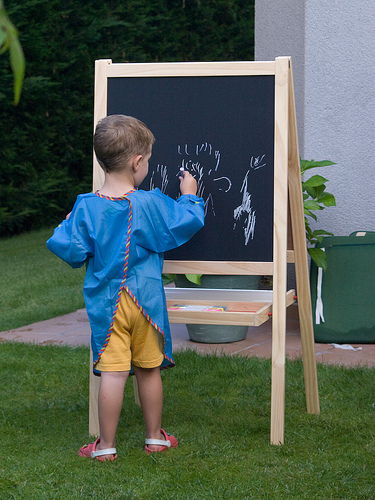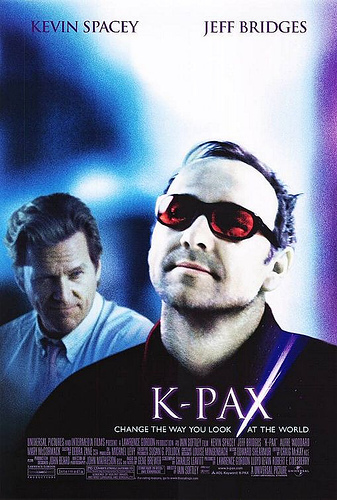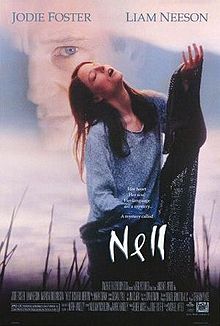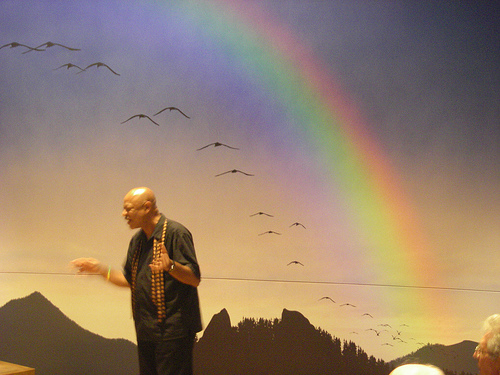Tried and True Tips for First-Time Authors
Today’s guest post comes from writing instructor Amanda Guest, who is the Community Manager for FastPencil, a site that helps teach writers the fastest and easiest way to write and publish a book. She often shares tips on writing and marketing self-publishing books on the FastPencil blog.
Very often we hear from authors who say they know they have a great book inside them, but don’t know how to get it out. Here are our most tried and true writing tips to help get you on the path to creating your best first book:
Take a Deep Breath, Create an Outline, and Then Just Write
Before you can begin writing, you’ll need to get in the right mind space, banishing any thoughts of self-doubt so that you can create freely. Don’t worry about creating a masterpiece. For now, focus on telling your story.
Why create an outline? You wouldn’t embark on a trip without a map or GPS device, so why not chart your book’s course with the same care? The outline you create could be chapter by chapter, or simply an overview of your intended story arc. This will not only help you get started but keep you moving forward throughout the writing process.
Now, all that’s left to do is write!
Write in the Active Voice
As you begin writing, be sure you’re using the active voice! Many times, when an a writer lacks confidence in their work, it’s because the work itself seems wishy-washy. Not sure what I mean by “the active voice”? Let’s look at some examples!
Writing in active voice happens when your subject performs an action:
- John watched a movie.
- I paid the check.
- You ate too much pizza.
If your writing lacks energy or if it’s taking a lot words to convey your idea, you’re probably using the passive voice. Writing in the passive voice happens when the action happens to the subject:
- A movie was watched by John.
- The check was paid by me.
- Too much pizza was eaten by you.
Sentences written in the active voice are clearer, more concise, and won’t lose the reader halfway through. Take a peek inside the last page-turner you simply couldn’t put down or review a non-fiction piece you find especially authoritative. I’ll bet you’ll find it’s written in the active voice!
Avoid Clichés
Though we come from all walks of life, at the end of the day we all want to be better writers . . . wait—haven’t I heard some of those phrases before? Ah yes, like nails on a chalkboard . . . here comes the cliché- that tired old turn of phrase that creeps into your manuscript when you least expect it. How do you keep yourself on the path to self-publishing success without resorting to worn-out metaphors and other hackneyed phrases?
It’s simple—start by forgiving yourself! Everybody succumbs to the ease of the cliché from time to time—especially when it’s late, your tired, and the dazzling descriptive words you want to use simply aren’t coming to you. What’s important is that you take the time to edit your work after you’ve finished writing, to seek out any well-trodden words you might want to banish from your book. If something sounds a little too familiar to you, rewrite it in a new, unique way.
The lesson here is that writing your story begins with phrases and ideas that are nobody’s but your own. Just relax and be you!
Don’t Confuse Writing with Editing
Has this ever happened to you? You sit down to write but first you decide to take a peek at what you wrote during your last session…and see something so glaring you decide to make an edit. Then two. Then a few more. Before you know it you’ve scrapped everything you’d previously written and you’re stuck.
Or maybe you get yourself hung up by writing and rewriting the same sentence over and over before you can move on?
If you said yes to either of these scenarios, you’re editing while you write and for the sake of your success as a writer it’s time to stop!
It seems like an efficient way to work- editing each sentence as you go along should mean your written work pours perfectly onto each page. But, in reality, editing while you write is one of the most destructive habits you, as a writer, can indulge in. Not only are you slowing yourself down, but you could completely stymie your creative process!
We all know our brains are divided into two halves—the left (creative) and the right (rational). Think of writing as your right brain task. Allow yourself to reach your full creative potential by turning off your editing left brain and really focus on getting all of your ideas out onto paper or the computer screen. Only after you’ve completely finished writing your piece is it time to call upon your left brain to do its thing. Put on your critical thinking cap and edit to your heart’s content.
Separating writing and editing into two individual steps in your overall writing process will free you to write faster and more creatively than ever before. But, don’t be surprised if you find editing-on-the-fly a hard habit to break. After all, I caught myself editing this post at least five times before I was finished writing it!
Chinese philosopher Lao-tzu said, “A journey of a thousand miles begins with a single step,” and your journey writing- your book is no different.
Get all of your ideas out on paper or computer screen. Don’t think about how good it is. Remember, writing and editing are very two different things. You’ll have plenty of time to revise and refine later!
Feature Photo Credit: rahego via Compfight cc
 Amanda Guest’s career as a marketing professional in the publishing space spans a decade, and as FastPencil’s Community Manager, she shares her insights on the entire self-publishing process- from creating an outline to building an audience and getting the final product out into the world- on the FastPencil blog. She also manages the company’s Facebook page and you can follow Fast Pencil on Twitter.
Amanda Guest’s career as a marketing professional in the publishing space spans a decade, and as FastPencil’s Community Manager, she shares her insights on the entire self-publishing process- from creating an outline to building an audience and getting the final product out into the world- on the FastPencil blog. She also manages the company’s Facebook page and you can follow Fast Pencil on Twitter.












“Don’t Confuse Writing with Editing”
True. This is the advice that I follow:
“Write drunk; edit sober.”
— Ernest Hemingway
It has served me well over the years.
Ernie J. Zelinski
No need to print this message:
Just letting you know that the passage: “the left (creative) and the right (rational).” should be switched to read “the left (RATIONAL) and the right (CREATIVE).”
Other than that, great post! Thanks for sharing 🙂
Ali Jayne
I am so guilty of editing while writing or even worse, editing instead of writing anything new. I think it’s been it’s holding me back after reading this. Time to work on breaking that habit. Thanks for the post and great advice!
Something good to remember…there’s no point editing work in the draft because you could end up cutting it on revision. Just get it all down first.
Ali is right. Left – rational and right – creative.
This is common sense advice that is extremely helpful. I take notes and keep advice like this.Thank you.
Some good tips here.
I saw something on 60 minutes about a painter. He smoked pot while painting so he wouldn’t worry what others thought of his work.
Maybe that was just an excuse though.
Perhaps aspiring authors need to find out what their ‘pot’ is.
I’ve a feeling far too many don’t write as much as they could, or throw out what there was nothing wrong with, because of worry and doubt.
I love the beginning idea. Take a breath, outline and write. It seems so easy, right?? I find that taking the pressure off of myself to write something great the first time through helps me to get more done in the end.
I also like to outline and re-outline and re-outline again. That’s helpful to me!
Wonderful post!
Jenny
http://www.blotsandplots.com
I can’t understand why someone would do a guest post on a website and then not leave a single response to the comments.
Would a marketing professional do such a thing? And would you want that professional working for you?
I think it’s a fair question.
thanks for the post, i’ve learnt alot!!